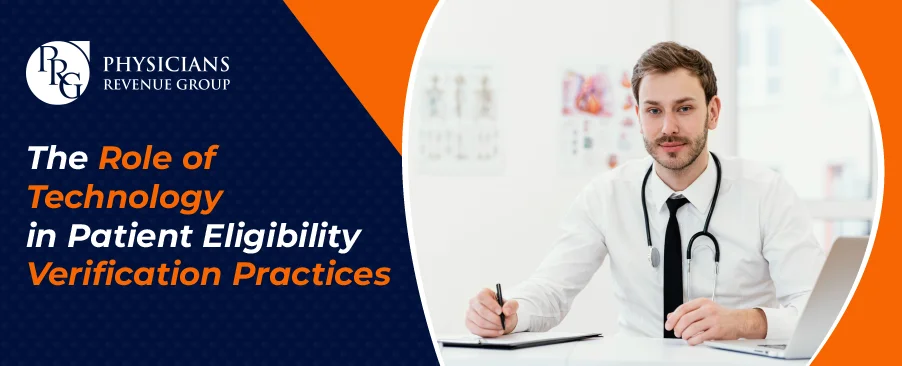As we look into the impact of patient eligibility verification in healthcare RCM, it becomes evident that mastering it is key to unlocking financial success. The incorporation of technology stands as a game-changer, enhancing the accuracy and efficiency of eligibility verification processes, paving the way for a more robust RCM.
At the heart of patient eligibility verification lies the promise of accurate billing and timely reimbursement. Verifying a patient’s eligibility before services are rendered ensures that claims are submitted with precise information, reducing the likelihood of errors and subsequent payment delays.
In healthcare RCM, claim denials can be a significant setback. Accurate eligibility verification minimizes the chances of denials, reducing the need for time-consuming rework and allowing providers to allocate resources more efficiently.
In the not-so-distant past, patient eligibility verification primarily relied on manual processes. Staff would manually gather and verify patient information, a time-consuming process, which was prone to errors. The traditional approach, while once the norm, has proven to be a bottleneck in the rapidly evolving healthcare RCM.
The challenges associated with manual verification processes are multifaceted. From data entry errors to delays in obtaining updated information, the manual approach introduces a level of inefficiency that can lead to claim denials and revenue leakage. In an era where precision and speed are essential, the limitations of the traditional approach have become increasingly evident.
Technology-driven solutions, including automated processes, artificial intelligence (AI), and machine learning (ML), are revolutionizing how healthcare providers approach eligibility verification. These solutions not only address the limitations of manual methods but also open doors to extraordinary levels of accuracy and efficiency.
Technology introduces automated verification processes that significantly enhance the efficiency of eligibility checks. Automated systems can seamlessly cross-reference patient information with insurance databases, reducing the risk of errors associated with manual data entry. The benefits extend beyond accuracy, with automation streamlining the entire verification process.
AI and ML bring an edge to patient eligibility verification. These technologies learn from historical data, improving accuracy over time. By analyzing vast datasets, AI and ML algorithms can identify patterns and trends, allowing for more informed decision-making in eligibility verification, ultimately reducing the likelihood of claim denials.
Eligibility verification in healthcare RCM is continuously evolving, driven by emerging technological trends. Blockchain technology, known for its secure and transparent data-sharing capabilities, is gaining traction in eligibility verification processes. This innovation ensures a tamper-proof record of patient information, further enhancing the accuracy and security of eligibility checks.
Looking ahead, the potential advancements in eligibility verification technology hold promising implications for healthcare providers. Predictive analytics, powered by machine learning algorithms, may become integral in foreseeing potential eligibility issues before they arise. This proactive approach not only reduces the risk of claim denials but also empowers providers to address potential challenges early, fostering a more resilient revenue cycle.
The dynamic nature of healthcare RCM necessitates that providers stay well-informed of technological advances in eligibility verification. Being well-informed about emerging trends and advancements ensures that healthcare practices can adapt swiftly, capitalizing on the latest technologies to optimize their revenue cycles. The proactive adoption of innovative solutions positions providers at the forefront of efficiency and accuracy in patient eligibility verification.
In summary, the value of patient eligibility verification in healthcare RCM cannot be overstated. It serves as the base for accurate billing, timely reimbursement, and overall financial stability for healthcare providers. The accuracy of eligibility verification directly correlates with reduced claim denials, streamlined processes, and enhanced revenue optimization. As we reflect on the journey from traditional methods to technology-driven solutions, the pivotal role of technology in improving eligibility verification practices becomes clear. The efficiency gains, reduction in errors, and the ability to conduct real-time checks are important aspects that reshape the healthcare RCM.




